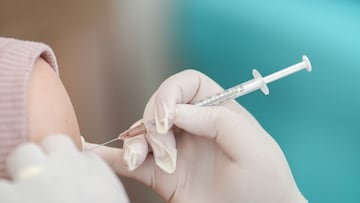What immunizations are required in New York State for children?
To be able to attend school in New York State, children must be age-appropriately immunized. What are the vaccines that children are required to receive?


Immunizations are essential for the overall health and well-being of children: they protect them from serious and potentially life-threatening diseases.
These also contribute to public health, which is why in New York State, all children are required to receive vaccinations if they go to public, private or religious schools, pre-K or day care.
This is a must unless the child has a valid medical exemption to immunization. The CDC’s Advisory Committee on Immunization Practices is the body responsible for issuing guidelines on vaccination.
Parents are required to present proof of their children’s updated vaccinations or supply a valid medical exemption within two weeks of the first day of school or day care. Children must also receive the necessary subsequent vaccines to complete the immunization series to be able to remain in school.
READ ALSO: How to avoid peanut allergies in children, according to new data
Parents: Not sure if your children are up to date on their routine vaccinations, including their measles vaccine? If your children were vaccinated in New York City, you can use My Vaccine Record to look up their immunization records.
— City of New York (@nycgov) April 17, 2024
Learn more: https://t.co/wIDLMm3LPz pic.twitter.com/Rp33Zqchuw
What immunizations are required in New York State for children?
According to the New York State website, there are the vaccines that children must receive, depending on their educational level.
Vaccines required for day care, pre-K, and school attendance
- Diphtheria and Tetanus toxoid-containing vaccine and Pertussis vaccine (DTaP or Tdap)
- Hepatitis B vaccine
- Measles, Mumps and Rubella vaccine (MMR)
- Polio vaccine
- Varicella (Chickenpox) vaccine
Additional vaccines required for middle school and high school
- Tdap vaccine for Grades 6-12
- Meningococcal conjugate vaccine (MenACWY) for Grades 7-12 Students in Grade 12 need an additional booster dose of
- MenACWY on or after their 16th birthday
Additional vaccines required for day care and pre-K
- Haemophilus influenzae type b conjugate vaccine (HiB)
- Pneumococcal Conjugate vaccine (PCV)
What are the benefits of immunization?
Prevention of serious diseases
Vaccinations protect children against infections and potentially dangerous diseases. Vaccines also help reduce the severity of an illness.
Building a child’s immunity
Vaccines train the immune system to recognize and fight specific pathogens like viruses or bacteria by exposing it to a harmless component or a weakened form of the disease-causing organism.
This exposure helps the immune system develop a memory of the pathogen, providing long-term protection and immunity against future infections.
READ ALSO: “Better memory” among various benefits claimed from drinking this tea
Developing herd immunity
When a significant portion of the population is vaccinated, it helps prevent the spread of contagious diseases. This is especially important for protecting individuals who cannot be vaccinated, such as infants, elderly people, or those with compromised immune systems.
Eradication and control of diseases
Vaccines have led to the eradication of certain diseases, such as smallpox. They also play a crucial role in the global efforts to eliminate polio and control diseases like measles and rubella.
Related stories
By maintaining high vaccination rates, communities can prevent outbreaks of vaccine-preventable diseases.
Public health responsibility
Vaccinating children is a responsible public health practice that helps protect others in the community, especially those who are most vulnerable to infections.


Complete your personal details to comment